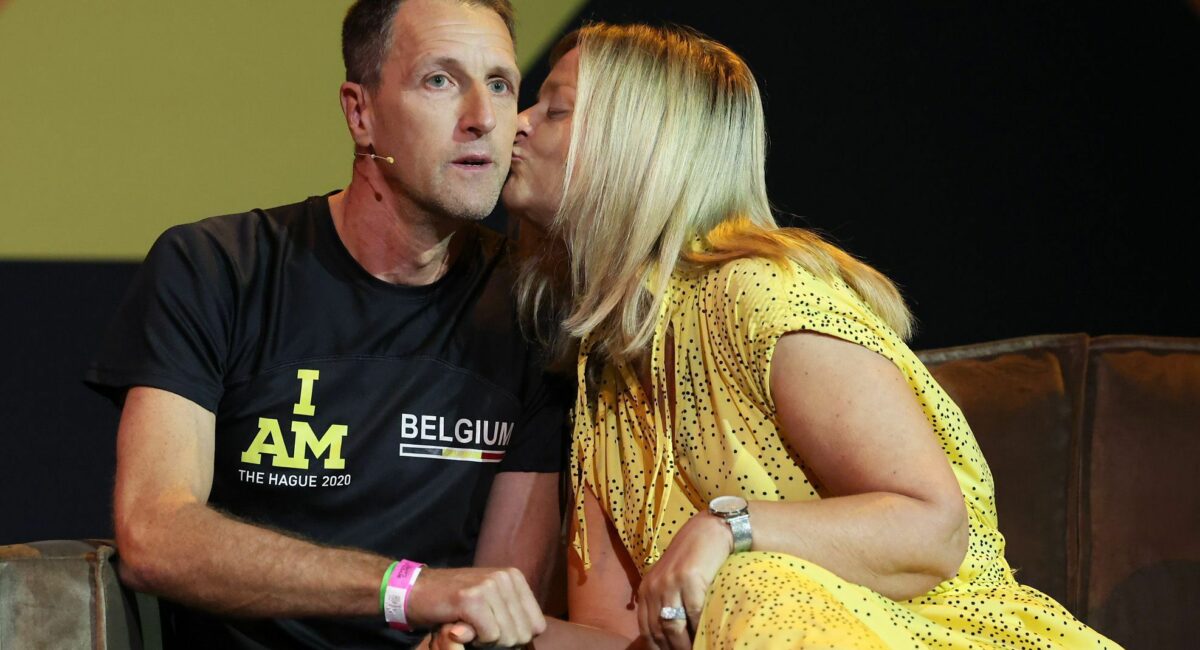“I knew the Games myself, I always followed them through the BBC. But it was a pleasant surprise that we can participate this time. We are coming with a small group of nine athletes. I will not say that the Invictus Games are totally unknown to us in Belgium, but it will not immediately ring a bell with many people either. I hope that our trip to the Netherlands will now change that throughout Belgium. There is certainly a lot of interest from the Defence Staff. Initiatives for veterans are also being supported more and more, there is a lot of attention for keeping the war-wounded in service. That also makes participating in this so valuable for us.”
In 2012, Wolput suffered neurological deficits with an unclear cause. Initially it mainly affected his toes, but later his lower leg followed as well. “The muscles don’t work at all anymore; I have no feeling in it. I can stand on my feet, but I cannot walk without a tool. I have an orthosis.”
Wolput was frustrated for a long time, he wanted to know what was wrong with him. “I was in a deep rut; it was really black. But in 2014 I turned around. I then said: I no longer need to know what is going on, I accept it for what it is. That was the point that I could start thinking about rehabilitation again, that I wanted to make the best of my circumstances.”
This switch also allowed him to begin mountaineering again. “Even before I got paralyzed, I had the idea of someday trying to climb a mountain of more than 8000 meters. Because of my condition, I saw that dream diminish. But in the end, I was never able to completely get it out of my mind.”
That was, of course, quite a challenge. Where others already knew they had to climb with minimal oxygen (‘Up there it feels like you’re breathing in through a straw’), Wolput also struggled with ‘that lower leg.’ “It is actually just a piece of meat that hangs onto me. I do everything with the strength of my thigh.”
In 2017 it happened anyway. Despite Wolput’s physical limitations, he conquered the Lhotse, 8516 meters high. “Whether you experience euphoria when you get to the top? Sure, you’re happy. But there is the realization that you are only halfway. Because you have to quickly head back down. In fact, the most dangerous part is still to come. Because, you have been busy for hours and you at least have to hike and conquer the obstacles you have already faced.”
Wolput, who repeated his amazing accomplishment last year, by conquering the Manaslu (8163 meters), now faces another, completely new challenge: the Invictus Games. “We have had no experience with this in Belgium, we have to learn everything. That is a nice challenge. We are happy to be a part of it now, this will give a lot of people a boost now and in the future.”
The Belgian team is finding its way within the Invictus family. We were in contact with the Dutch delegation, partly because that will be the host country in 2020. “And for our training we can go to the French team in Fontainebleau.” Stef is working on his condition during those meeting days, although of course he has nothing to complain about as a mountain climber.
The 52-year-old Fleming, who has served for the Belgian Air Force for 33 years, is, as befits a real Belgian, a lot on his racing bike. “I will off course also participate in cycling, both the time trial and the criterion. Definitely. I live in the centre of the country, not far from Brussels. I like to train in the hills of Brabant.”
The Belgians have a reputation in road cycling. Stef Wolput, nicknamed Wolf, would like to defend that honor. “Although we also know that it is not about winning medals at the Invictus Games. You just want to do and show your best.”
Wolput trains occasionally with a number of his teammates. “And some of us will also participate in swimming and athletics. Because we are with such a small team and have started training relatively late all together, we are not participating in team sports. We have all decided to participate in indoor rowing. In our opinion, that will be our team sport in May.”
